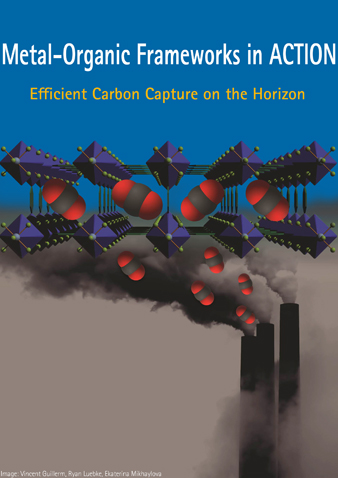Scientists from KAUST and the University of South Florida (USF) have discovered and developed a unique, efficient, inexpensive, and reusable metal-organic framework (MOF) material for carbon capture and separation that could lead to new clean-air and energy saving technologies. Their joint breakthrough, funded by a KAUST-sponsored faculty-initiated collaboration grant, offers new tools for confronting the world’s challenges in controlling carbon dioxide (CO2) emissions.
In a
paper published in the prestigious journal
Nature, Mohamed Eddaoudi, Professor of Chemical Science and Associate Director of the Advanced Membranes and Porous Materials Research Center at KAUST, and his colleagues – an international group of multidisciplinary scientists and students, reveal and describe the unique properties of a previously underused material that offers a new mechanism for capturing CO2.


